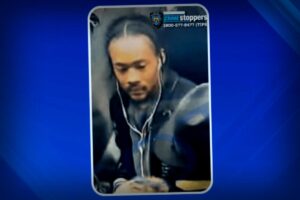Authorities in Norway have indicted a former security guard from the United States Embassy located in Oslo on counts of espionage related to Russia and Iran. The identity of the accused hasn’t been disclosed, but sources from Norway’s state broadcaster NRK reveal that this individual reportedly shared classified information with foreign entities.
The prosecution alleges that this man provided detailed information, such as floor plans and security protocols, alongside photos relating to the embassy. Furthermore, it’s claimed he divulged information about embassy personnel and their families. Interestingly, he was said to have received money through Bitcoin and euros.
This 20-something Norwegian, who is studying security and preparedness at the Arctic University of Norway (UiT), was arrested back in November 2024 after authorities accused him of sharing sensitive details while employed at the embassy. The Norwegian domestic intelligence service (PST) detained him at his home garage, expressing concerns over potential dangers to national security.
What are the national security implications?
The indictment has raised alarms about the risks posed to U.S. diplomatic staff and broader American interests abroad. Prosecutors assert that the information passed by the suspect heightened the embassy’s vulnerability, putting at risk those individuals mentioned.
Despite not holding a security clearance, he worked at the embassy while attending university, specifically pursuing a degree in security.
What does the defense say?
The suspect’s legal team acknowledges the allegations but denies that any crime occurred. Defense attorneys Inger Zadig and John Christian Elden emphasize that the case’s outcome hinges on how Norwegian laws define classified information and whether the shared details could genuinely compromise national interests. They clarified that the suspect had minimal access to what qualifies as sensitive data.
In an email to The Associated Press, Zadig remarked, “Essentially, this case revolves around legal definitions—specifically, what constitutes ‘classified’ information under the law and its potential to harm vital national interests. Our client had no security clearance, and thus, his scope for accessing information that could jeopardize essential national interests was virtually non-existent.”
What motivated the alleged espionage?
NRK reported that the accused referenced U.S. Middle Eastern policies, especially those involving Israel and the ongoing conflict in Gaza, as his reasons for engaging with Russian and Iranian operatives. Notably, both nations have notably aligned against the U.S. on various matters, including the war in Ukraine and nuclear talks with Iran.
Have there been similar cases in Norway?
This incident marks the second instance of espionage linked to UiT in recent times. In 2022, authorities arrested a researcher who had posed as a Brazilian national, later to be found out as Russian agent Mikhail Mikushin, who ultimately became part of a prisoner exchange between Russia and Western countries.
What’s the international reaction?
The Russian embassy in Oslo has refrained from providing comments but referred to Article 22 of the Vienna Convention, which underscores the importance of safeguarding diplomatic missions, reports Newsweek.
If found guilty, the former security guard could be looking at a sentence of up to 21 years in a Norwegian prison.





















